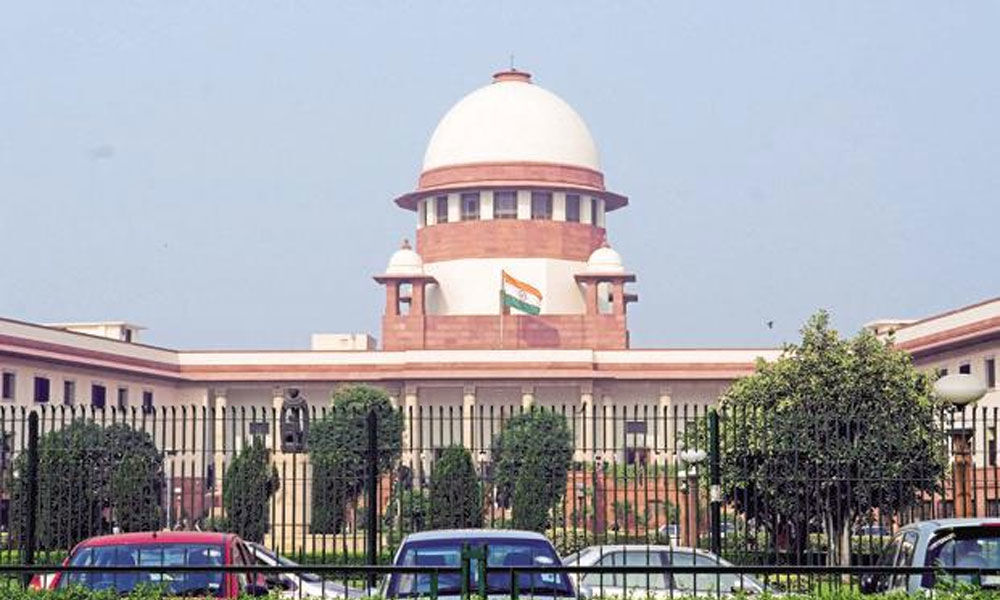Live
- Union minister Pradhan launches 'The Teacher App'
- Oppn members seek more time for JPC on Waqf Bill
- SC upholds ‘secular, socialist’ in Preamble
- RASS conducts Siva Parvathi Kalyanam
- Rs 12L refunded to FedEx parcel scam victim
- Vaikuntha Dwara Darshan from Jan 10 to 19
- Airport at Mandasa sparks protests
- KIIT-DU bags 4th rank in THE 2025 Science rankings
- YSRCP govt signed PPAs with SECI only: Kakani
- SIT speeds up probe in adulterated ghee case
Just In

The Supreme on Monday said that it will consider on March 28 whether petitions challenging the 10 per cent reservation in jobs and educational institutions for the economically weaker sections of unreserved categories should be referred to a larger bench.
New Delhi: The Supreme on Monday said that it will consider on March 28 whether petitions challenging the 10 per cent reservation in jobs and educational institutions for the economically weaker sections of unreserved categories should be referred to a larger bench.
A bench of Chief Justice Ranjan Gogoi, Justice Deepak Gupta and Justice Sanjiv Khanna said that it would consider the plea on referring the issue to a larger bench after senior counsel Rajeev Dhavan said the limit of 50 per cent was part of the Constitution's basic structure.
"If it requires consideration by a larger bench, we will do it," Chief Justice Gogoi said as Dhavan reiterated that the 10 per cent reservation was also part of basic structure.
Chief Justice Gogoi asked Dhavan to tender a short note on his submissions.
On February 8, the apex court refused to stay the decision to give 10 per cent quota for economically weaker sections amongst the unreserved categories and had clubbed all petitions for early hearing.
The top court on January 25 sought the Centre's response on a plea by NGO Youth for Equality challenging the constitutional validity of the 10 per cent reservation in jobs and education for the economically weaker section within the general category.
The NGO had contended that the amendment violated the "basic structure" of the Constitution as cited in a 1992 Supreme Court judgment that held that economic criteria cannot be the sole basis of reservations under the Constitution.
It had also contended that the amendment breaches the 50 per cent cap set by the 1992 judgment by a nine-judge Constitution Bench.

© 2024 Hyderabad Media House Limited/The Hans India. All rights reserved. Powered by hocalwire.com







